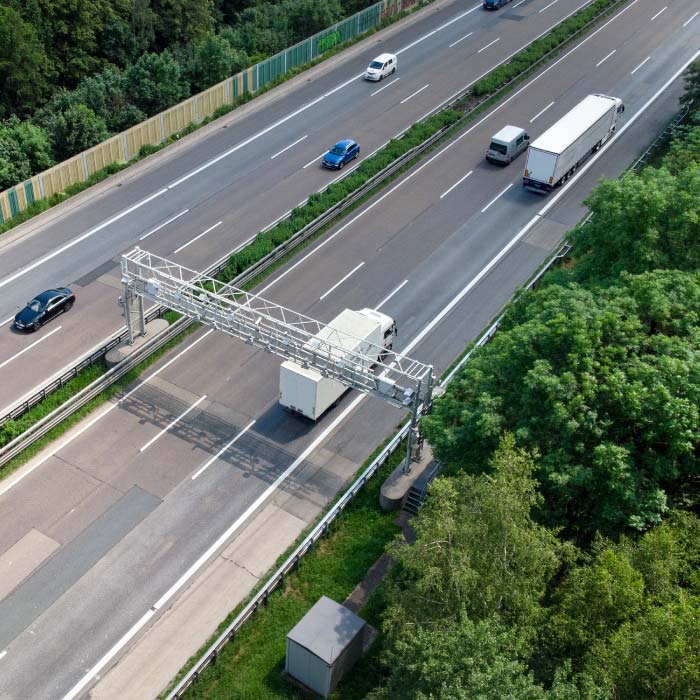A marketing team wanting to target their latest product based on geography. A delivery driver looking to avoid traffic jams. A fleet manager searching for the least-traveled route ahead of time. These are all scenarios in which TomTom Traffic products can really shine. Those valuable products include Traffic Stats, O/D Analysis, Route Monitoring and Junction Analytics.
These products and licensing are a testament to the amazing technological advancements TomTom has made over the years and how location and spatial data can be gathered to inform the decisions of countless businesses worldwide.
Products

Traffic Stats
TomTom Traffic Stats works by using trillions of measurements gathered in a massive database that see when and where traffic tends to be the heaviest or lightest. Identifying problematic areas and planning for the best routes ahead of scheduled trips or deliveries are among Traffic Stats’ many uses.
Traffic Stats lets users make three types of analyses:
Route Analysis
Users can define a specific route and see the average speed, travel times and the sample size.
Area Analysis
Users can find average speeds and average travel times as well as the sample size for each segment.
Traffic Density
This puts emphasis on analyzing the sample size, excluding speed and travel information.

O/D Analysis
TomTom Origin Destination (O/D) Analysis uses advanced technology along with exceptional visualization and data from 600+ million connected devices worldwide 10-year data archive to present an analysis of the patterns of everyday movement throughout the world. This origin-destination analysis can be used for location-targeted marketing, urban planning, tourism studies and more.

Route Monitoring
TomTom Route Monitoring lets users monitor strategic routes and pre-define important routes in real time. This includes details about current travel times, any delays, route distance and live data coverage. This service is particularly ideal for monitoring real-time traffic conditions and even enables city traffic managers to actively intervene and improve traffic flow by redirecting vehicles away from congested areas and optimizing the use of the road network.

Junction Analytics
TomTom Junction Analytics gives you real-time visibility into how intersections are actually performing. Drawing from anonymized data across 600+ million connected devices, the platform delivers practical metrics like travel times, queue lengths, and turn ratios that help you fine-tune signal timing, ease bottlenecks, and enhance safety outcomes. The best part? It works with your existing infrastructure — no additional hardware required.
Whether you're troubleshooting a problem intersection or planning system-wide improvements, having this level of granular, real-world data can make the difference between guessing and knowing what's really happening out there.
Licensing
Licensing for TomTom Traffic Stats is based on the cost per directional mile. This flexibility allows the customer to set up their own queries using the TomTom Move Portal or the API. Factors that influence the cost per directional mile include the route, date range and time sets.
